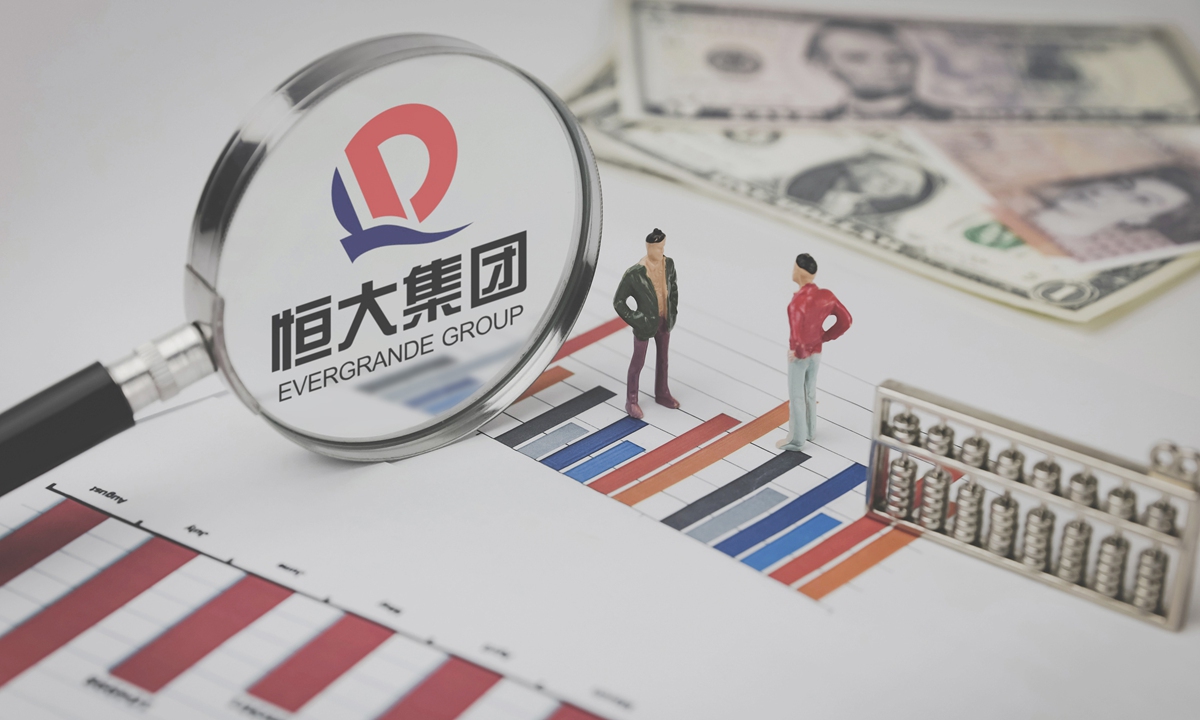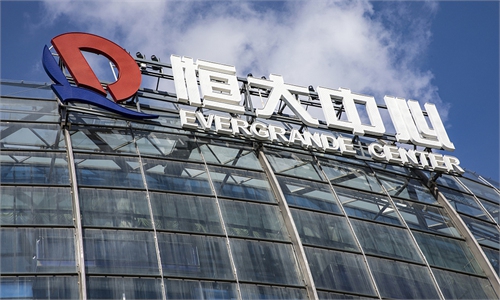
Evergrande Group Photo: VCG
A number of mainland real estate companies were among 32 firms to suspend trading in Hong Kong on Friday after failing to meet the earnings report deadline, according to the Hong Kong Stock Exchange.
The suspension of trading is likely to add another layer of uncertainty to the credibility of the troubled developers, experts said.
Troubled developers including China Evergrande, Sunac China Holdings, Shimao Group Holdings were among the 32 suspended. The number has dropped from 57 in 2021, according to the exchange.
The credit crunch, major business changes and COVID-19 have prolonged and disturbed the auditing process, companies said.
Frequent business changes since the first half of 2021 and the pandemic have added to workload for auditors and therefore the company cannot complete the auditing procedure on time, China Evergrande, Evergrande Property and Evergrande New Energy Auto stated and pledged to release the audited annual results as soon as possible.
Shimao group attributed the delayed audit procedures to the quarantine requirements during the latest wave of COVID-19.
Sunac said that due to the recent downgrade by international rating agencies the company is actively in talks with creditors to solve the problems of overseas loans which will have an uncertain impact on financial results. The company would not release the unaudited annual results before Friday and an audited version will be released as soon as possible.
A major reason for the delay could be the debt pressure as it takes time to sort out the debt and deal with accounting issues, experts said.
The suspension of trading will further dampen the credit of the troubled enterprises and hurt the confidence of investors, Zhang Ning, a research fellow of the National Academy of Economic Strategy at the Chinese Academy of Social Sciences, told the Global Times on Friday.
"Stock suspensions will force companies to speed up resolving problems to resume trading, and accelerate asset sales to decrease leverage," Zhang said.
Yan Yuejin, research director at Shanghai-based E-house China R&D Institute said the suspension of trading is not likely to have an imminent impact on the liquidity pressure of the companies.
"The suspension is expected to shield the company from the volatility of the share price in the short term. During this period enterprises should consolidate their financial ability. It is certainly not enough to rely on marketing to support the development of enterprises," Yan told the Global Times on Friday.
Zhang noted that the real estate policy is easing as authorities have relaxed some restrictions in some cities.
Chinese authorities have been unveiling measures to stabilize the property market since the beginning of the year, including giving developers easier access to pre-sale funds held in escrow, requiring smaller down payments for first-time home buyers, and allowing commercial banks to lower mortgage rates.
"The regulations are gradually lifting the brake that has curbed the real estate market," Zhang said.
"In general the property developers still faced pressure in the first half of the year. The situation should be eased in the second half," Yan said.
Some 192 firms filed unaudited results by the deadline, the exchange said.
According to the exchange's rule, a company's shares will be halted if it doesn't release audited results by March 31. However, due to COVID-related delays, firms have been allowed to submit unaudited figures by March 31 and file the audited version by April 30 to avoid suspension.

